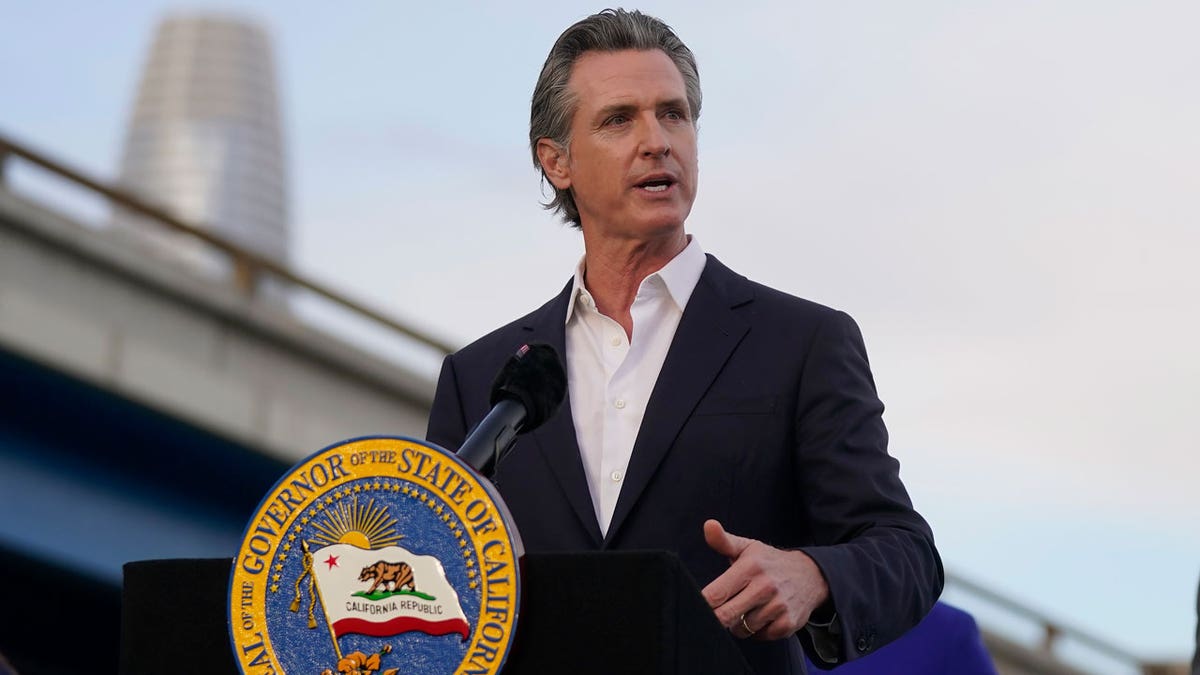Gov. Newsom slammed for pushing to use money to fight Trump: 'Total waste'
Former California Rep. Doug Ose comments on Gov. Gavin Newsom's push to 'Trump-proof' the Golden State as he seeks money for legal fights against the incoming president.
California’s unemployment insurance (UI) financing system is facing big deficits, requiring a full "redesign," according to a new report from the state’s nonpartisan Legislative Analyst’s Office (LAO).
The system, meant to be self-sufficient, has fallen short of covering annual benefit costs, resulting in a projected $2 billion annual deficit over the next five years and an outstanding $20 billion federal loan balance.
"This outlook is unprecedented: although the state has, in the past, failed to build robust reserves during periods of economic growth, it has never before run persistent deficits during one of these periods," the LAO report, titled "Fixing Unemployment Insurance" and published Tuesday, stated.
NEWSOM PROPOSES $25M FROM STATE LEGISLATURE TO ‘TRUMP PROOF’ CALIFORNIA

Gov. Gavin Newsom pauses during a news conference after touring Barron Park Elementary School on March 2, 2021, in Palo Alto, California. (Justin Sullivan/Getty Images)
Independent analysts project that annual shortfalls will increase California's federal loan, costing taxpayers around $1 billion in interest each year. The system, which is funded by employer payments to the UI Trust Fund, hasn’t been updated since 1984 and "cannot keep up with inflation or provide the intended wage replacement of half of workers’ wages," according to the report.
The current employer tax structure discourages eligible unemployed workers from claiming benefits, while the state’s low taxable wage base hampers hiring of lower-wage workers, analysts found.
One suggestion researchers wrote to fix the gap is to increase the amount of wages taxed for unemployment benefits, raising it from $7,000 per worker to $46,800. Supporters of this change say it would bring in more money to fund the program. The report also recommends reworking how businesses are taxed for unemployment benefits to make the system simpler and encourage more hiring.

California's LAO found deficits in the state's UI system. (iStock)
To deal with the massive federal loan, the report suggests splitting the cost between employers and the state government, so that businesses aren’t stuck with all the debt.
"These are significant problems in isolation, let alone in combination," analysts wrote. "The significant changes proposed in this report are an honest reflection of these problems. However, whether or not the Legislature takes action, employers will soon pay more in UI taxes than they do today due to escalating charges under federal law."

California Gov. Newsom speaks in San Francisco on Thursday, Nov. 9, 2023. He is expected to disclose his plan to deal with California's massive deficit on Wednesday. (AP Photo/Jeff Chi, File)
Gareth Lacy, a spokesperson for the California Employment Development Department, which administers the state’s unemployment insurance program, called it "a thoughtful report" and noted officials "are reviewing it carefully."
"We agree the issue stretches back for decades and the pandemic compounded it," Lacy told Fox News Digital in a statement.
During the COVID-19 pandemic, the state's UI system was hit hard with an overwhelming number of unemployment claims, resulting in the state borrowing roughly $20 billion from the federal government to cover insurance benefits, which the state still owes.
"Not only will the state’s tax system fall short of repaying that loan, the balance is set to grow due to the ongoing gap between contributions and benefits," the report noted. "This will become a near-permanent feature of the state’s UI program and a major ongoing cost for state taxpayers."






